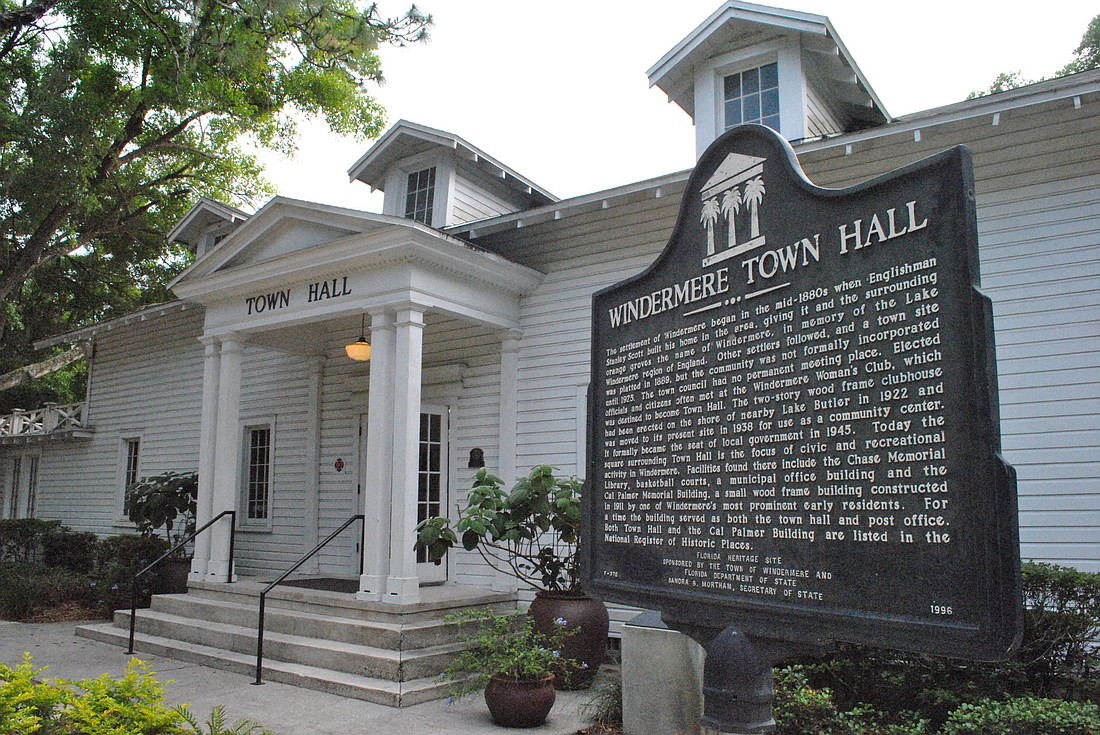- April 4, 2025
-
-
Loading

Loading

Multiple stormwater-improvement projects in Windermere have been a hot topic among town stakeholders.
Town leaders hosted a public workshop Oct. 27 to discuss conceptual plans for two projects in particular — First Avenue and Forest Street, and the Bessie stormwater basin. The concepts presented meet the minimal standards required by the Federal Emergency Management Agency, from which the town has been allocated grant money.
Representatives from Kimley-Horn presented the concepts. For First Avenue and Forest Street, it focuses solely on the stormwater-improvement component.
“This plan focuses on just the stormwater aspect of the project — more of a stormwater-maintenance project trying to maximize the use of what was previously deigned four years ago and constructed,” said Hao Chau, civil engineer at Kimley-Horn. “We are not proposing to reconstruct the dirt road; we’re leaving it as is. … This is regrading existing swales. … We just want to make them more well defined and more conducive to conveying and capturing the runoff from the dirt road.”
Chau said Kimley-Horn recommends two additional improvements to the existing system. Those include grading a swale area as a secondary outfall to the system along First Avenue to provide conveyance from south to north and adding an additional outfall pipe to the system to convey water quicker. Such improvements would allow the town to maximize the use of what is already in place.
“This is really more of a stormwater maintenance, and so really we’re just working within the confines of the swales and the conveyance system, which is why we’ve been able to kind of maintain what we’re working on specifically,” town engineer John Fitzgibbon said.
The Bessie stormwater basin project requires more effort. The conceptual project, as presented, would begin at Main Street and Ninth Avenue, and it continues along East Boulevard to Bessie Street. A swale system with a maximum width of 14 feet would be created along the existing 18-foot Ninth Avenue, and a cross drain would connect over Oakdale Street to keep water moving, among other improvements.
“I think we need to try to come up with a better solution that at least one of the residents will buy into, because I’ve not met one that would agree to this if it was up to them.” — Bill Martini
Residents have made various arguments regarding the conceptual designs — including the desire to maintain the exact width of the existing dirt roadways, encroachment on perceived property lines, environmental and tree concerns, and general distaste for swales or minimal standards.
To comply with grant-associated contracts, the town must meet minimum federal, state and engineering standard guidelines. That could include minimum shoulder widths and lane widths.
“I have not talked to a single person that is in favor of this project the way it’s presented,” said Council Member Bill Martini. “I think we need to try to come up with a better solution that at least one of the residents will buy into, because I’ve not met one that would agree to this if it was up to them. I think we’ve got to sharpen the pencil, so to speak, and see if we can find a better compromise or alternatives. I certainly don’t want to send the grant money back because I know how difficult it is to get it.”
Smith said the town has received $3 million in grants to offset the cost of these projects, as well as another stormwater project for West Second Avenue.
“All of these projects, the town does have to pay 25%, but again, it’s money well spent if you’re receiving that much money to help offset costs that would have been born by your taxpayers,” Smith said.
Balancing residents’ desires with engineering standards while trying to meet grant requirements has proved to be “an almost impossible task,” Smith said, and town staff has been trying to come up with every design and solution they can think of.
The next step, Smith said, is for Town Council to meet and decide whether to move forward with the design for these two projects. Should the council choose not to move forward, he said, the town would have to return or not accept the grant monies allotted.
“We have to make sure we’re protecting the safety, health and welfare of everyone,” Smith said. “It’s hard when you’re trying to do something for the general good, but you’re impacting a select few with the direct impacts.”